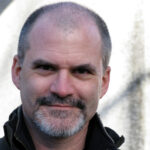 A great question will lead to more questions. Ask great questions.
A great question will lead to more questions. Ask great questions.
When judging an elementary school science fair, one student stood out. Not because her poster was elegant, nor that she discovered some delightful insight, it was her question. More so it was her way of asking questions.
Her project examined whether soccer practice really helped. Did ball handling and shooting drills help her during the game when the skills had to be second nature? She did an experiment to explore the ability of muscle memory with and without specific sports training. Continue reading →
 This type of reliability may have different names. A quick search of a few references in my library and I didn’t find ongoing reliability testing, ORT, in any of them.
This type of reliability may have different names. A quick search of a few references in my library and I didn’t find ongoing reliability testing, ORT, in any of them.